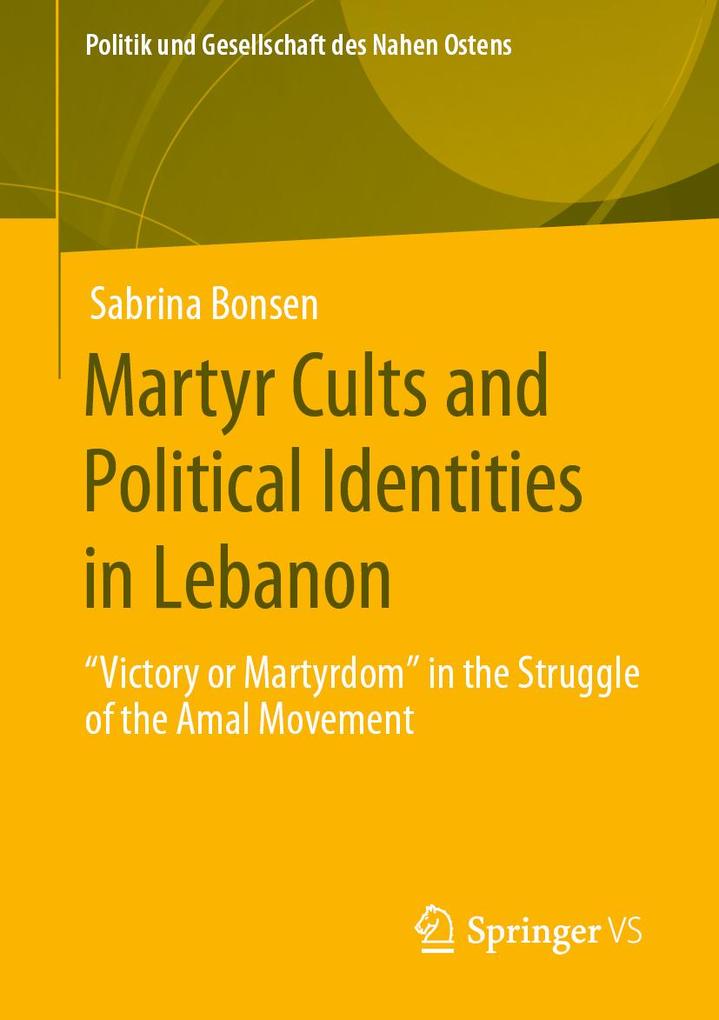
Sofort lieferbar (Download)
Sabrina Bonsen sheds light on political cults of martyrs in Lebanon and reconsiders the context of their emergence, development and distinct characteristics since 1920. She examines how the honouring of martyrs became an established practice in Lebanese politics and is crucial to grasp the logic of violence and conflict. Drawing on the case of the Amal movement, the author analyses central narratives to the group's discourse and practices concerning martyrdom to show how identity construction and strategies of legitimizing power are intertwined. Moreover, the book provides insides into political competition strategies, especially in regards to the two major Shi ite political actors, Amal and Hizbullah, and takes a new look on martyrdom by going beyond cultural-religious explanations.
Contents
Target Groups
The Author Sabrina Bonsen is a political scientist and received her doctorate from the University of Marburg. Her fields of research are contemporary political actors and societies in the Middle East.
Contents
- Modern political history of martyr cults and identities in Lebanon: common features and differences, functions and effects
- Contemporary martyr myths, memorials and rites identified through participant observations, literature analysis and interviews
- Case study on the Amal movement: political history, discourse and practices
Target Groups
- Lectures and students of political science, near and middle eastern studies, conflict studies
- Scholars and professionals interested in Lebanon and the Middle East
The Author Sabrina Bonsen is a political scientist and received her doctorate from the University of Marburg. Her fields of research are contemporary political actors and societies in the Middle East.
Inhaltsverzeichnis
Modern political history of martyr cults and identities in Lebanon: common features and differences, functions and effects. - Contemporary martyr myths, memorials and rites identified through participant observations, literature analysis and interviews. - Case study on the Amal movement: political history, discourse and practices.
Produktdetails
Erscheinungsdatum
24. Oktober 2019
Sprache
englisch
Seitenanzahl
367
Dateigröße
18,61 MB
Reihe
Politik und Gesellschaft des Nahen Ostens
Autor/Autorin
Sabrina Bonsen
Verlag/Hersteller
Kopierschutz
mit Wasserzeichen versehen
Produktart
EBOOK
Dateiformat
PDF
ISBN
9783658280987
Entdecken Sie mehr
Bewertungen
0 Bewertungen
Es wurden noch keine Bewertungen abgegeben. Schreiben Sie die erste Bewertung zu "Martyr Cults and Political Identities in Lebanon" und helfen Sie damit anderen bei der Kaufentscheidung.









